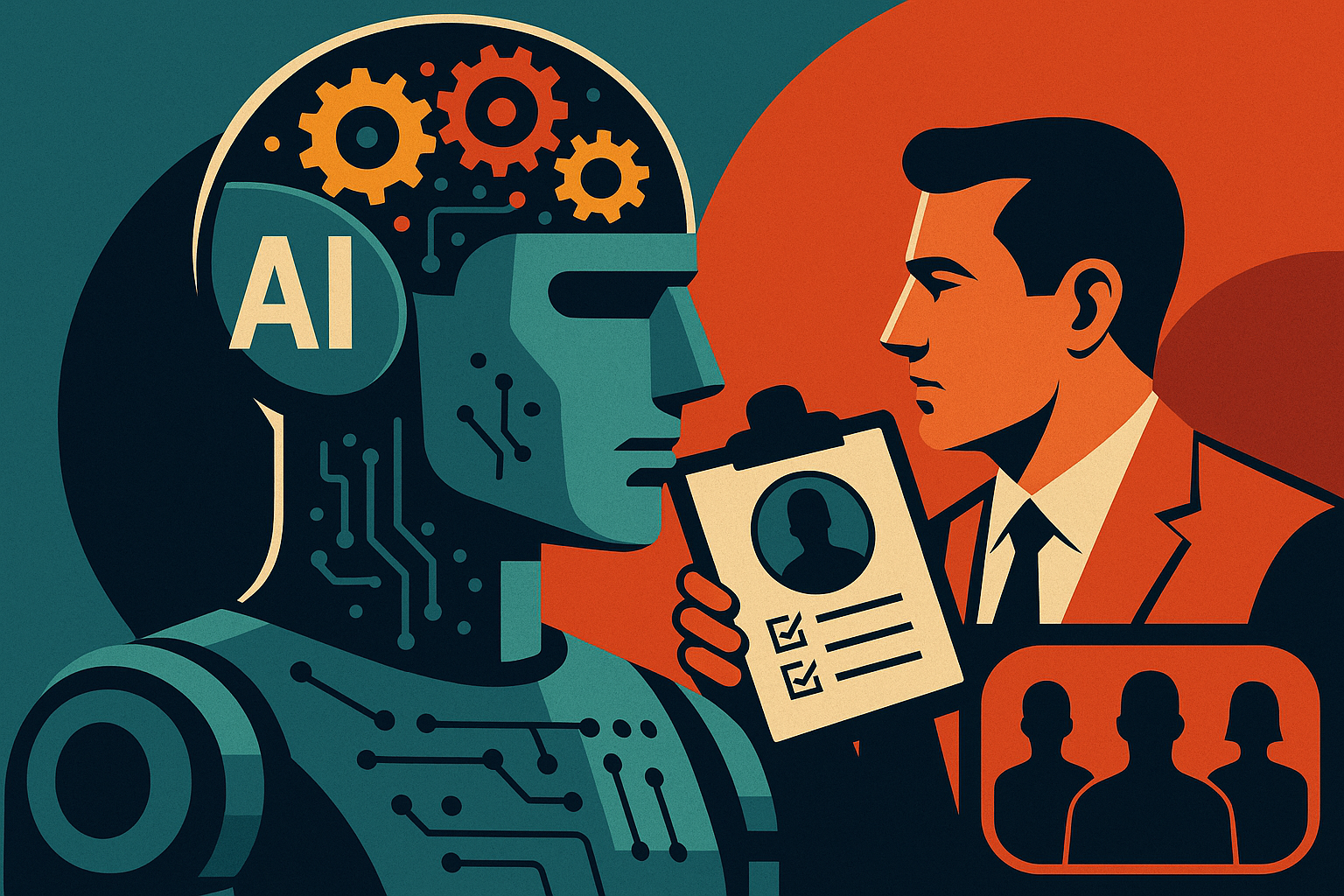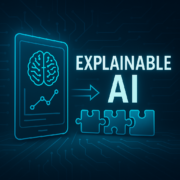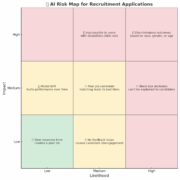How to Choose an AI Recruiter That’s Legal | EverlightAI
What to Look for in an AI Recruiter | Compliance, Fairness & Transparency | EverlightAI
AI recruiters are rapidly becoming a key part of modern hiring workflows. They save time, reduce manual screening, and promise more objective decisions. But not all AI recruiters are created equal — and choosing the wrong one can expose your company to legal, ethical, and reputational risks.
Here’s what you need to look for if you’re considering (or already using) an AI-based recruitment solution.
🛡️ Legal and Ethical Compliance
Before anything else, your AI recruiter must play by the rules — both in hiring and in AI deployment.
Compliance with anti-discrimination laws: EEOC (U.S.), GDPR (Europe), CCPA (California), and other local labor protections still apply, even if the decision comes from an algorithm.
Adherence to AI-specific laws: New regulations like the EU AI Act and NYC Local Law 144 require transparency, bias audits, and human review options. If your tool doesn’t meet these, you may be in violation.
Auditable workflow: You should be able to trace how a candidate’s score was generated — what was looked at, what was weighed, and how the final decision was reached.
Informed consent: Candidates must be told when AI is being used and what that means for them.
Human override: Applicants should always have the right to request a manual review of the AI’s decision.
Right to deletion and correction: Your tool must support data access, editing, or erasure in accordance with local data privacy laws.
🔎 Transparency and Explainability
Black-box decisions are a liability. A good AI recruiter must offer clarity, not mystery.
Feedback mechanism: Candidates should receive meaningful insights into how their scores were calculated — not just a number or binary result.
Visible scoring criteria: Whether it’s years of experience, skills match, or keyword alignment, the basis of evaluation must be transparent.
Bias audits available: You (and regulators) should be able to see reports showing how the tool performs across different demographics.
🔄 Data Control and Responsibility
Respect for candidate data isn’t optional — it’s a legal and ethical necessity.
Edit and delete tools: If a candidate requests correction or deletion of their data, your system must support that immediately.
No shadow storage: AI recruiters must not retain hidden copies of resumes, transcripts, or interaction logs beyond what’s disclosed.
Access logs: You should be able to see who accessed or modified applicant data and when.
📊 Statistical Consistency Matters
One of the less-talked-about strengths of a good AI recruiter is score stability.
Low standard deviation: The tool should return similar scores for similar inputs — not vary wildly based on phrasing or order.
Predictable behavior: No sudden spikes or drops based on emotional language, formatting quirks, or AI misinterpretations.
Robustness to messy inputs: A misspelled job title or missing date shouldn’t crash performance.
A good recruiter bot doesn’t just make decisions — it makes repeatable, explainable ones.
🧠 Smart, but Grounded
AI recruiters aren’t meant to be creative — they’re supposed to evaluate fairly and factually.
No hallucinations: The tool should never infer qualifications that aren’t explicitly stated.
Context-aware: It should recognize legitimate gaps, non-linear careers, or life events without penalizing the candidate.
Focused on patterns, not polish: Strong resumes come in many forms — the AI should know that.
👥 Designed with Candidates in Mind
A good AI recruiter doesn’t just serve your hiring team — it respects the human on the other side.
Clear communication: Candidates should know what the AI does, and how it affects their chances.
Appeal process: If someone is rejected, they should have a way to ask questions or challenge the result.
Inclusive by design: Non-traditional career paths, neurodivergent candidates, and ESL applicants shouldn’t be automatically disadvantaged.
✅ Final Thoughts
AI can be an incredible force multiplier in hiring — but only if it’s designed to be accountable, fair, and transparent. If your recruiter can’t show its work, explain its reasoning, or respect your applicants’ rights, then it’s not ready to represent your company.
Don’t just look for features. Look for principles.







Leave a Reply
Want to join the discussion?Feel free to contribute!